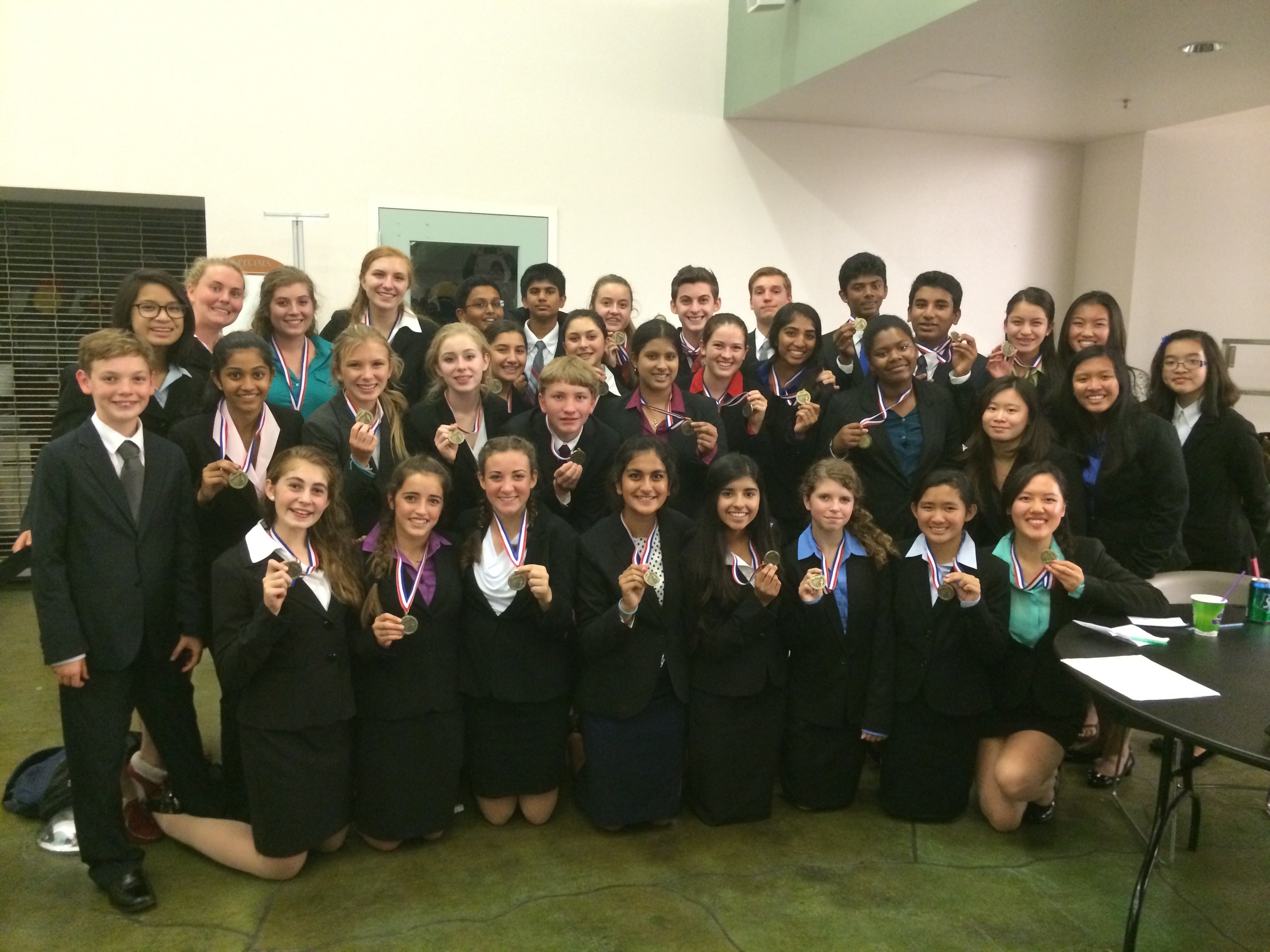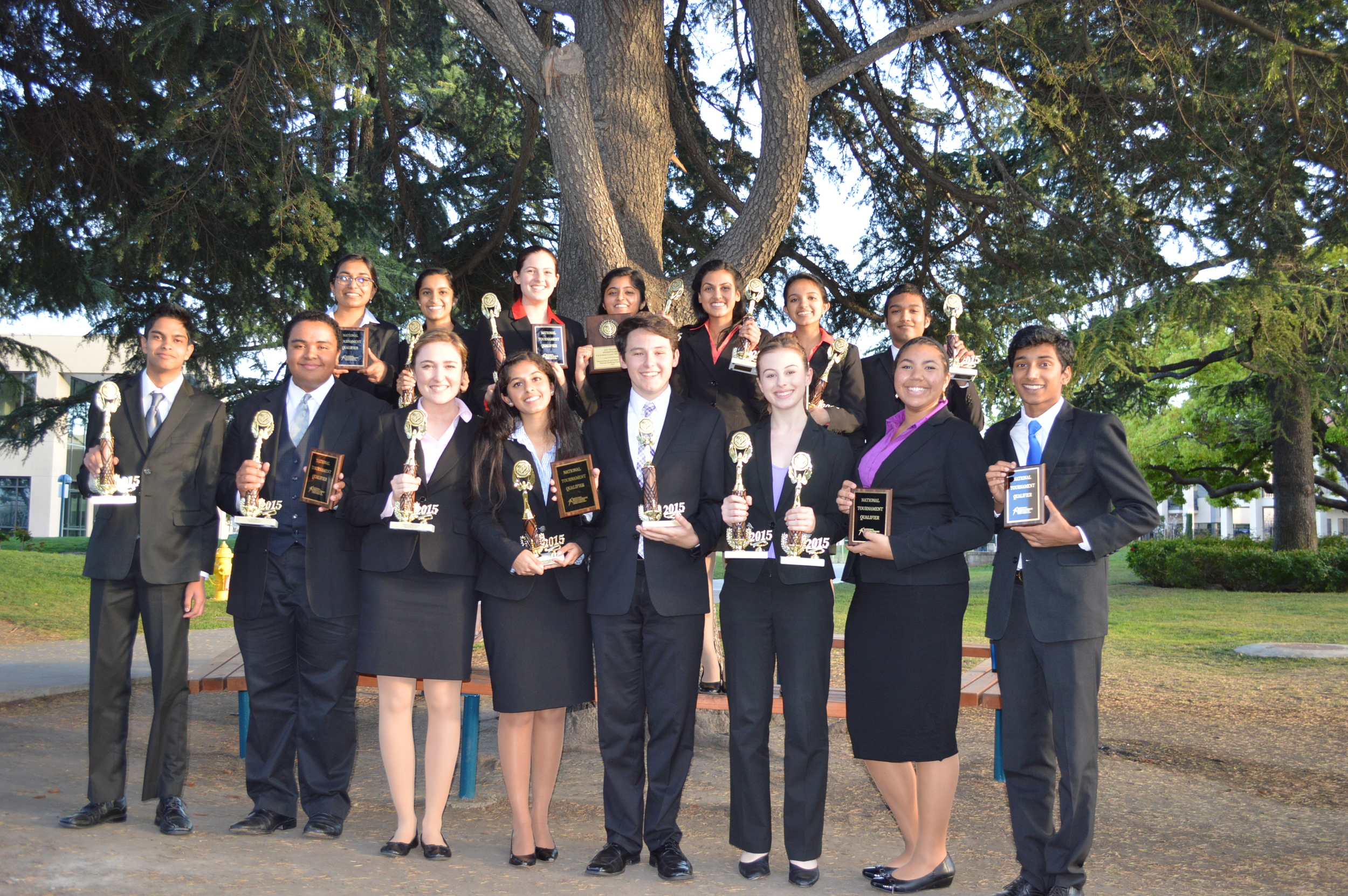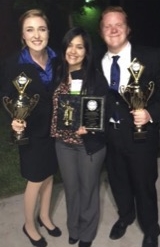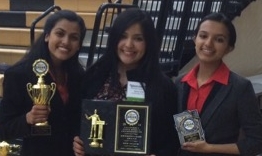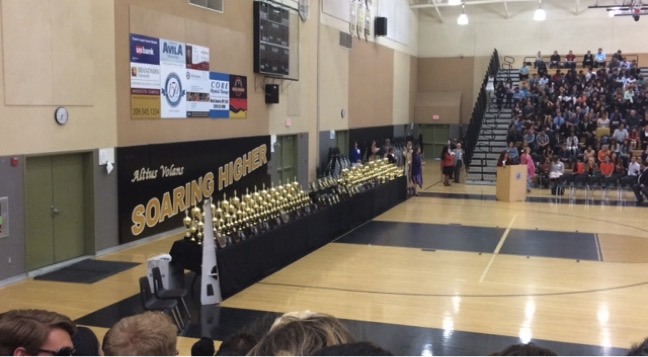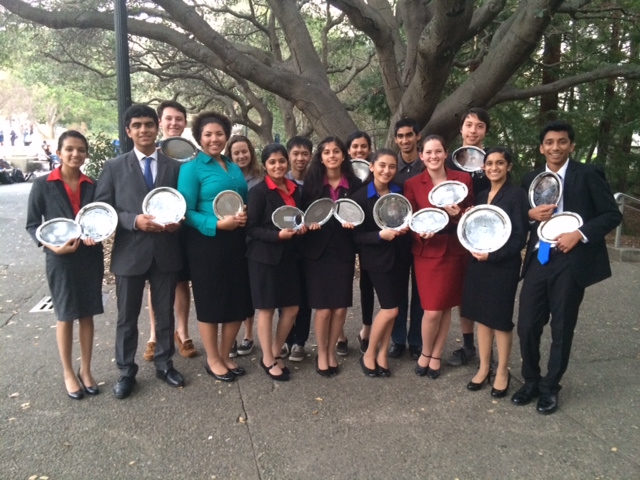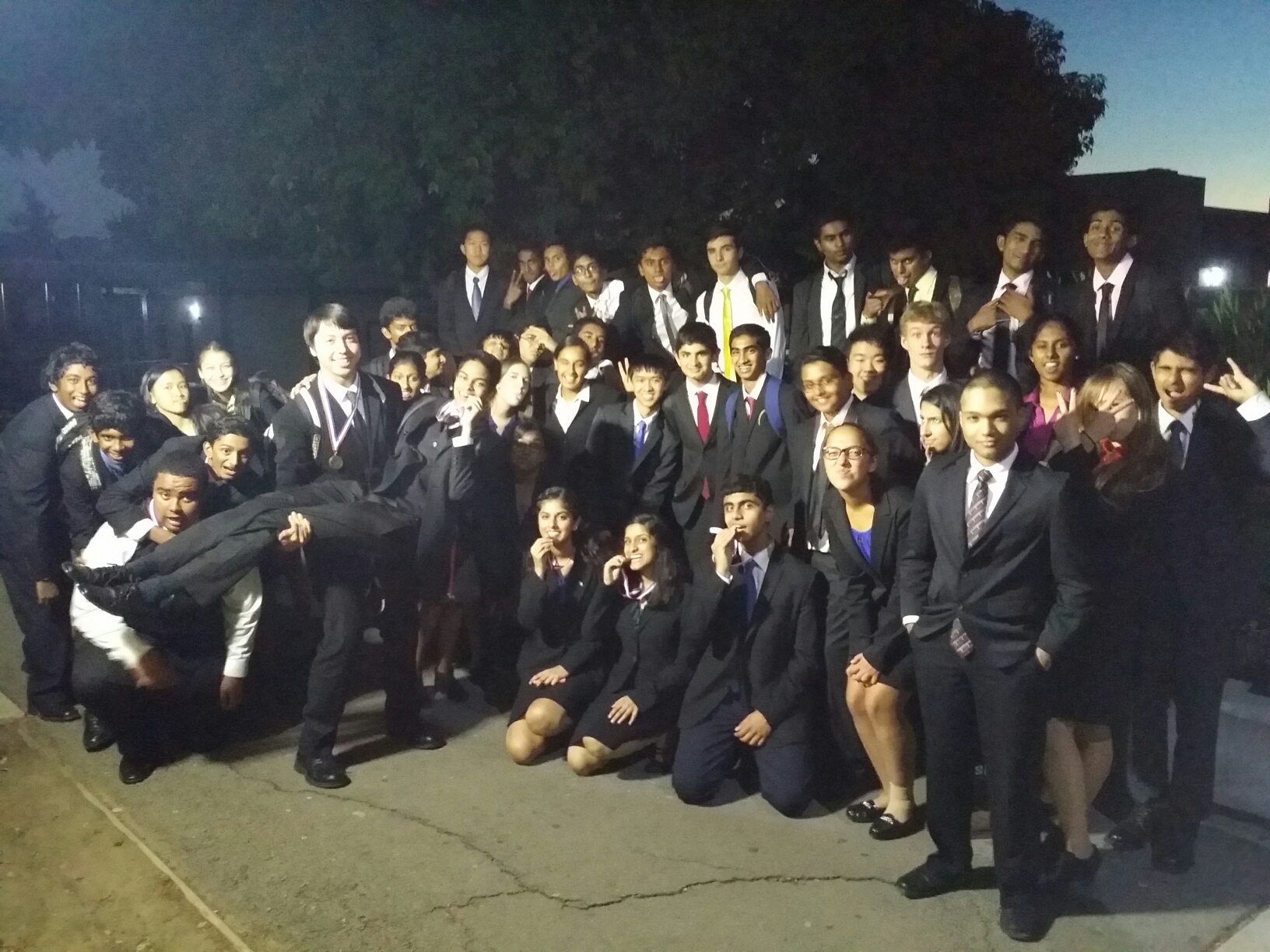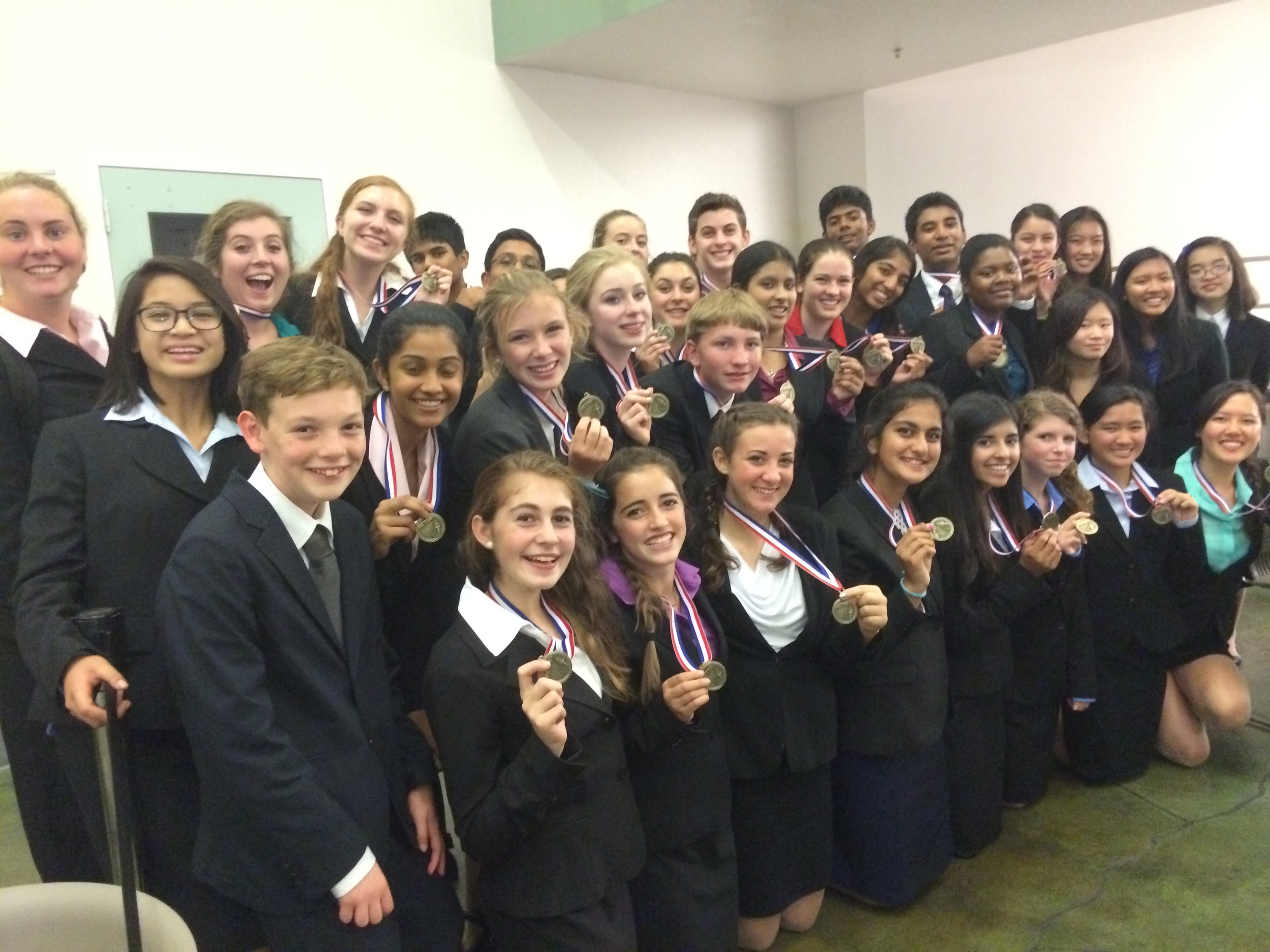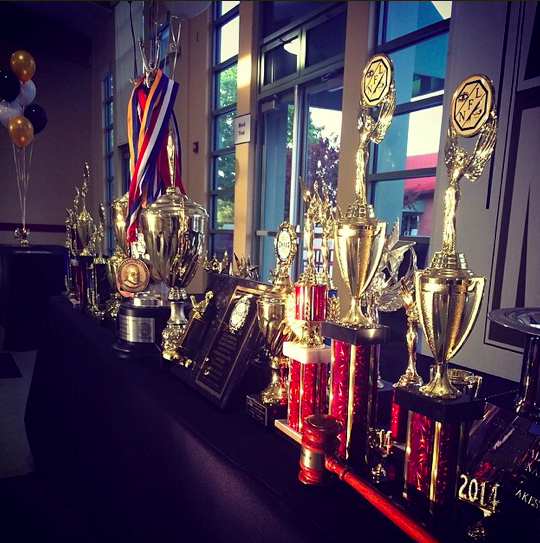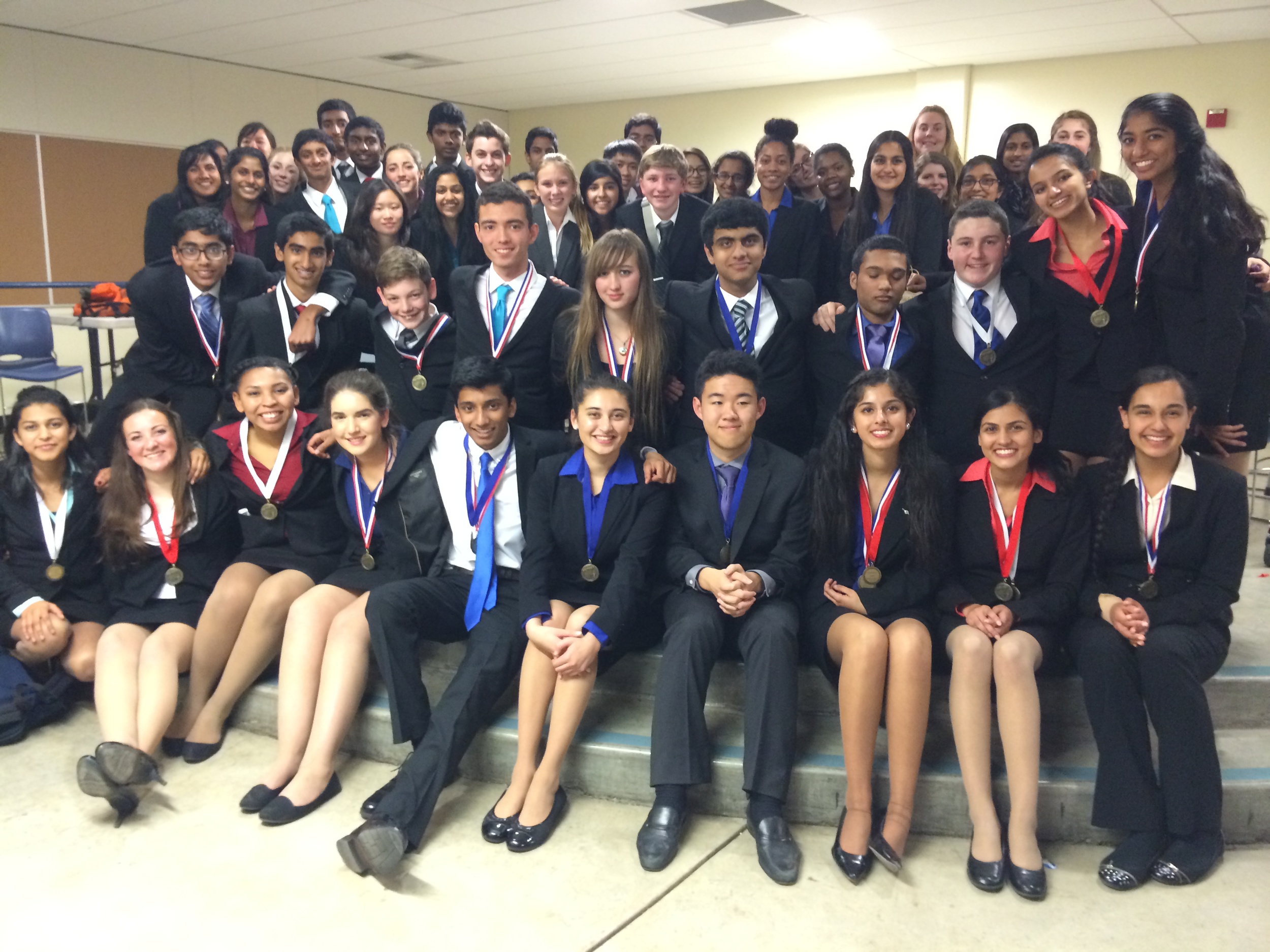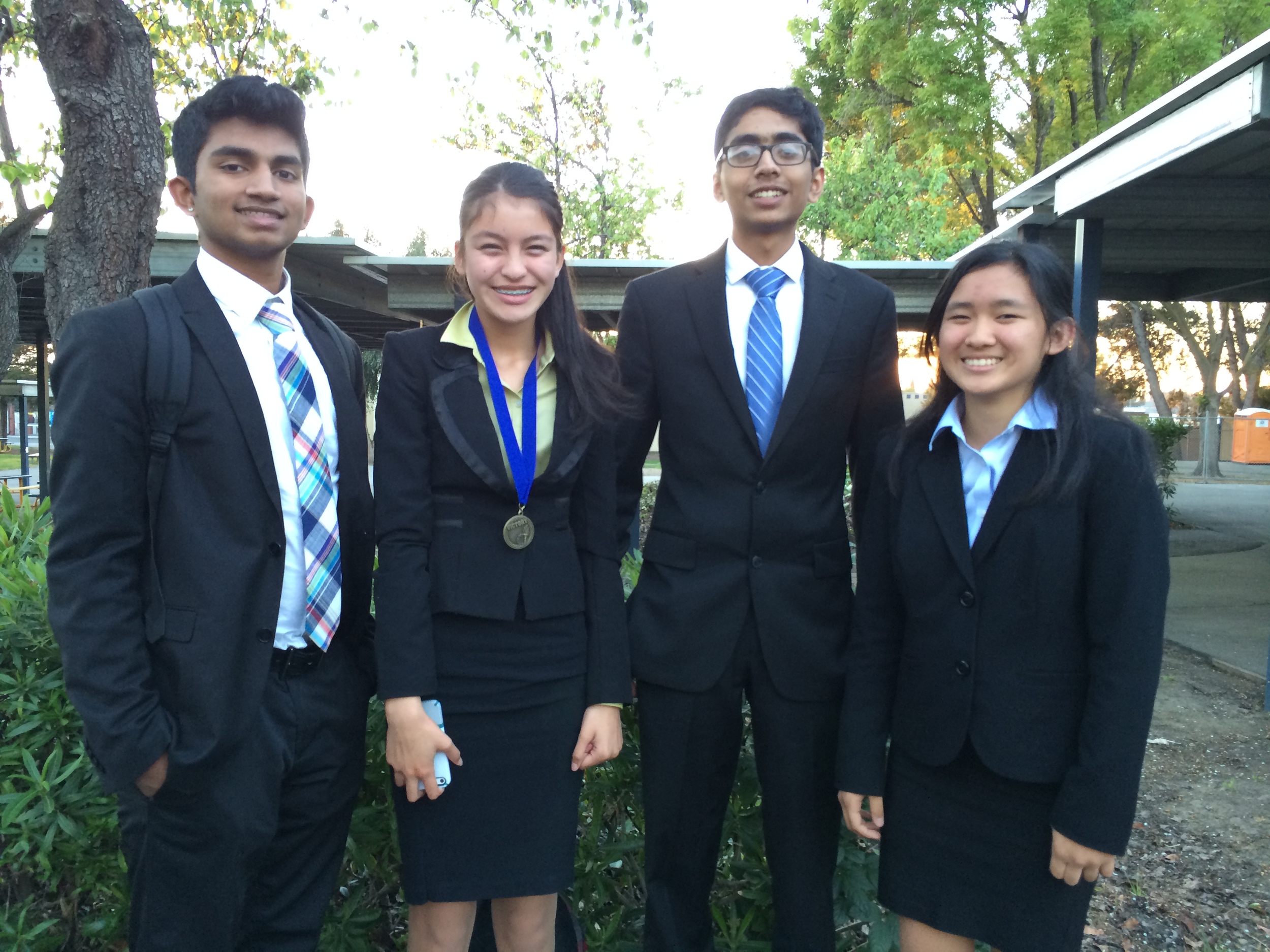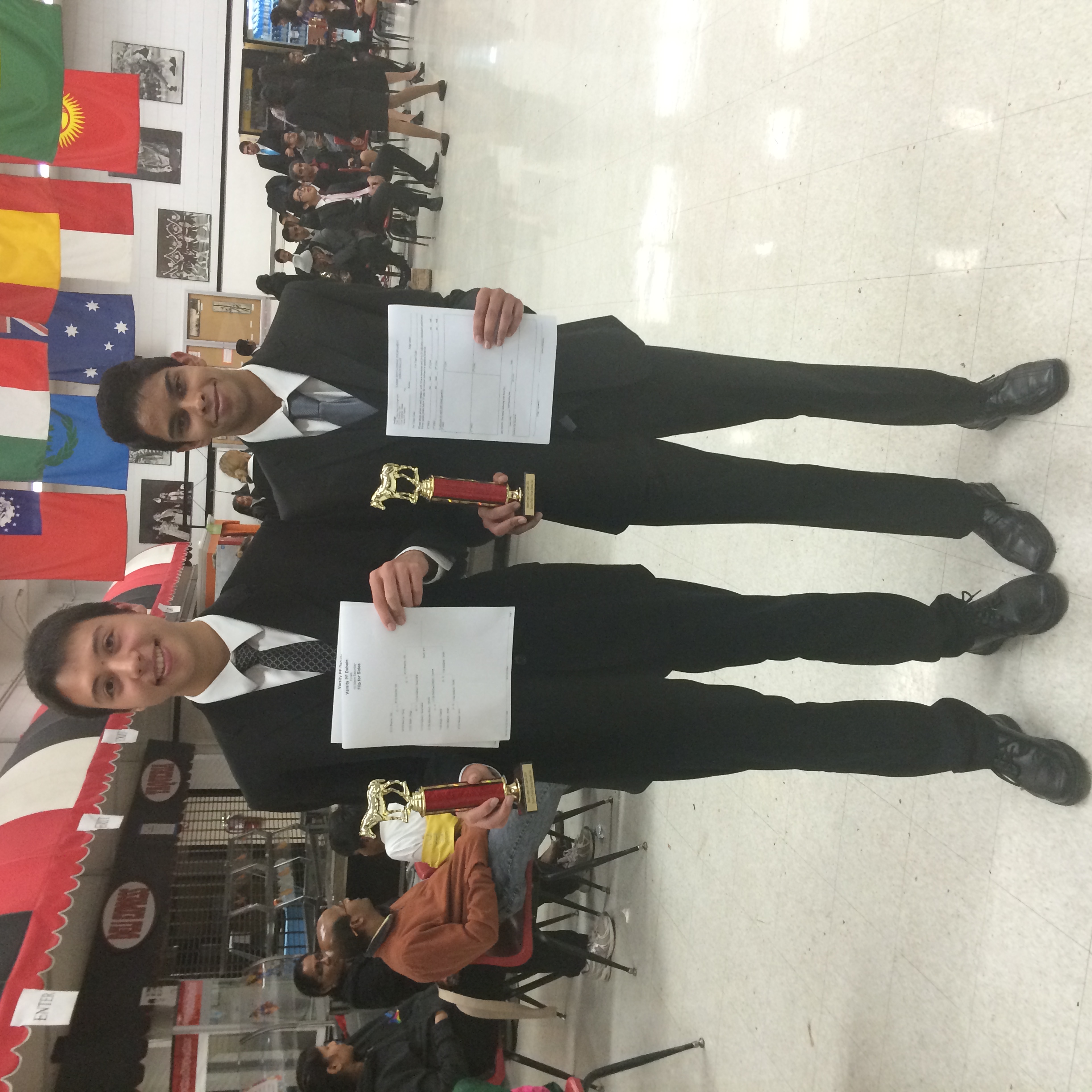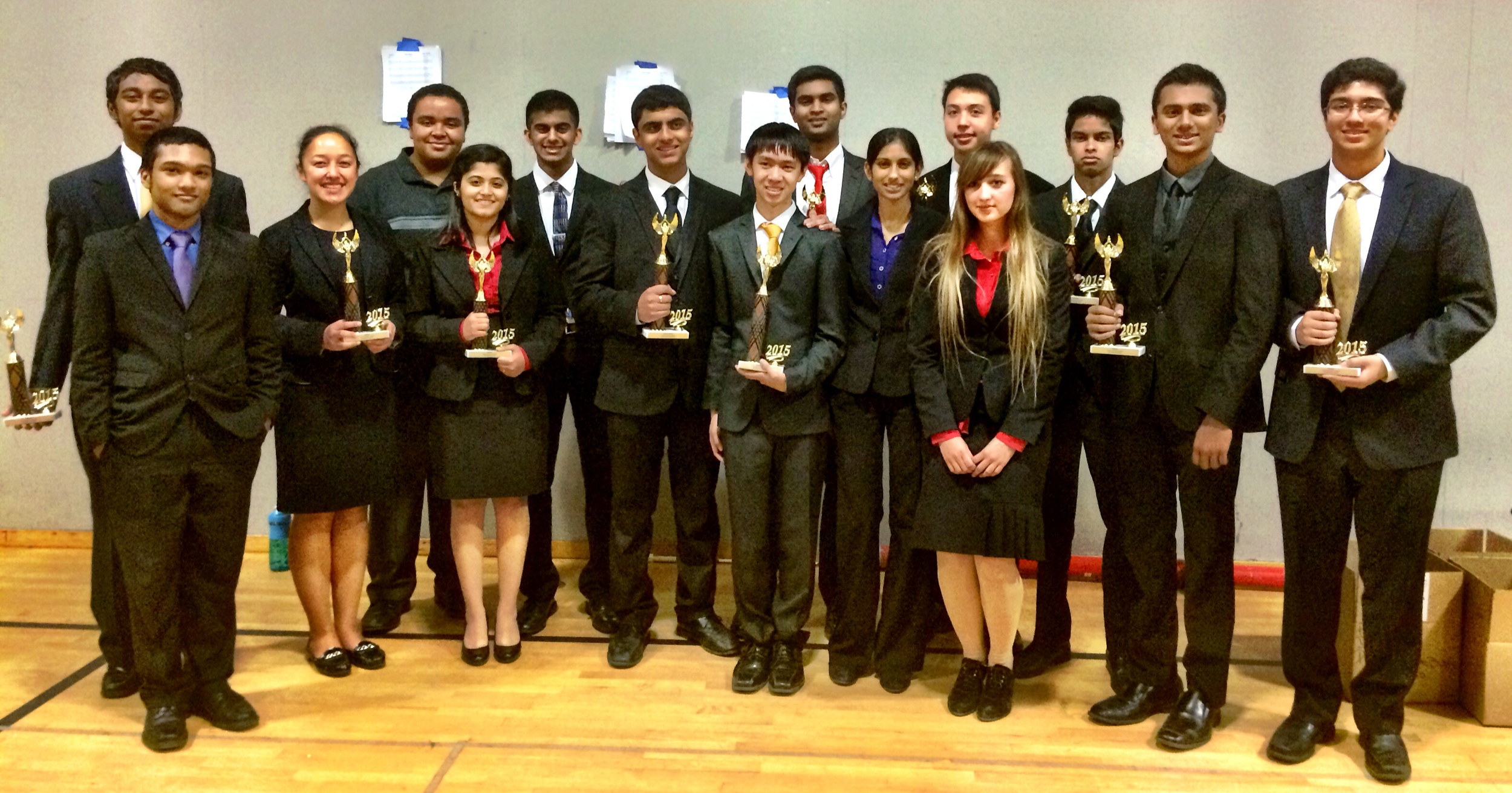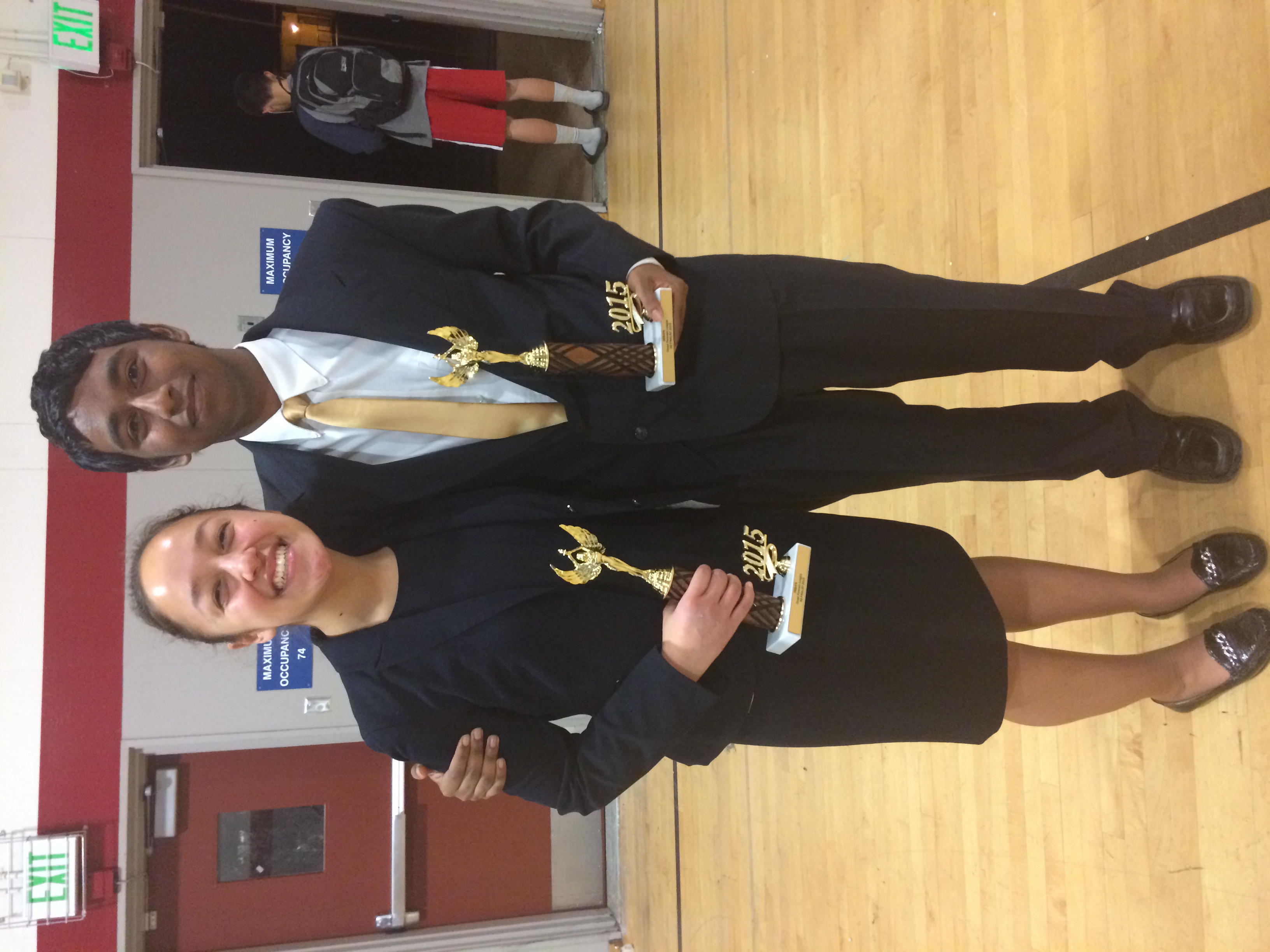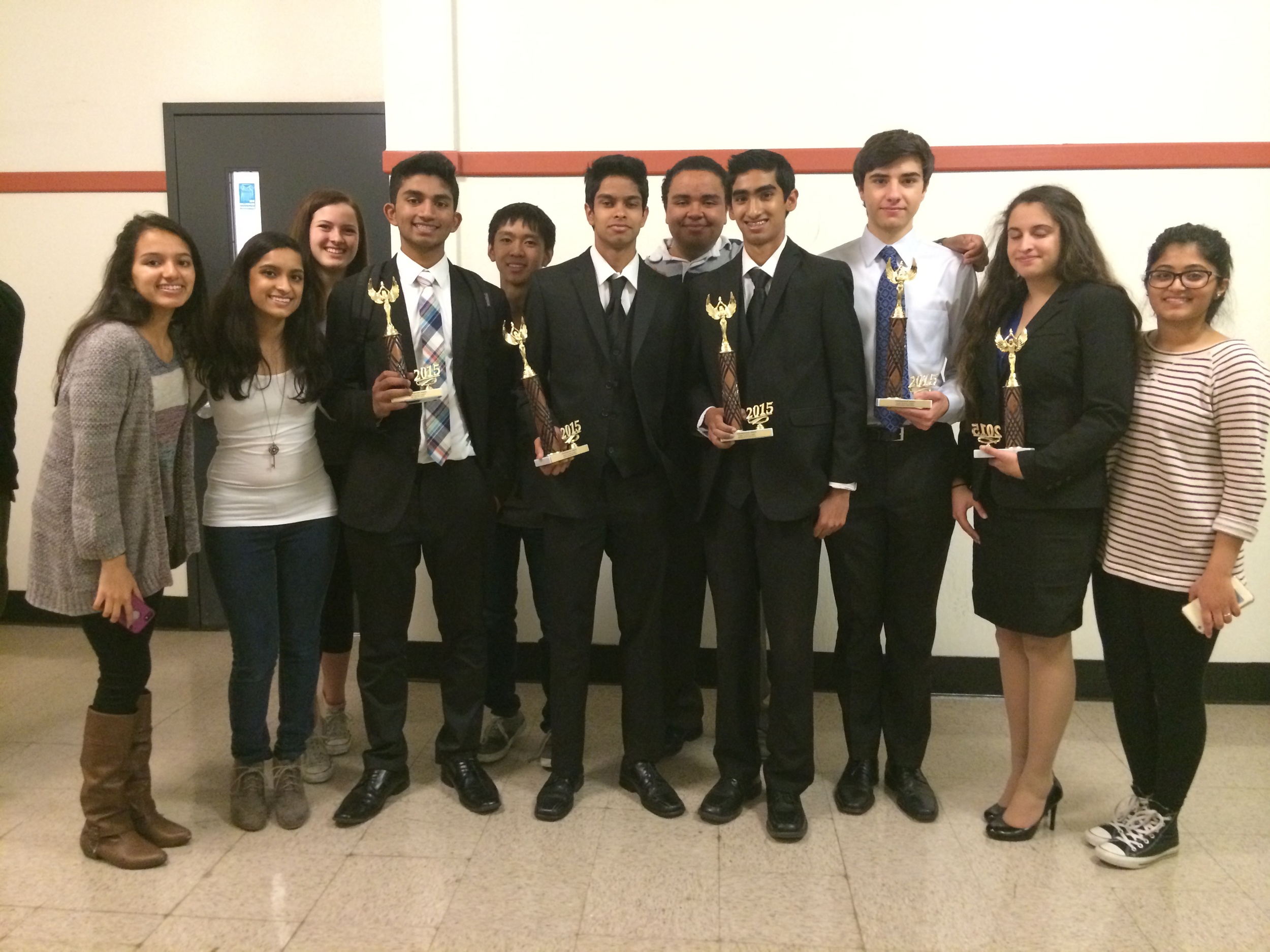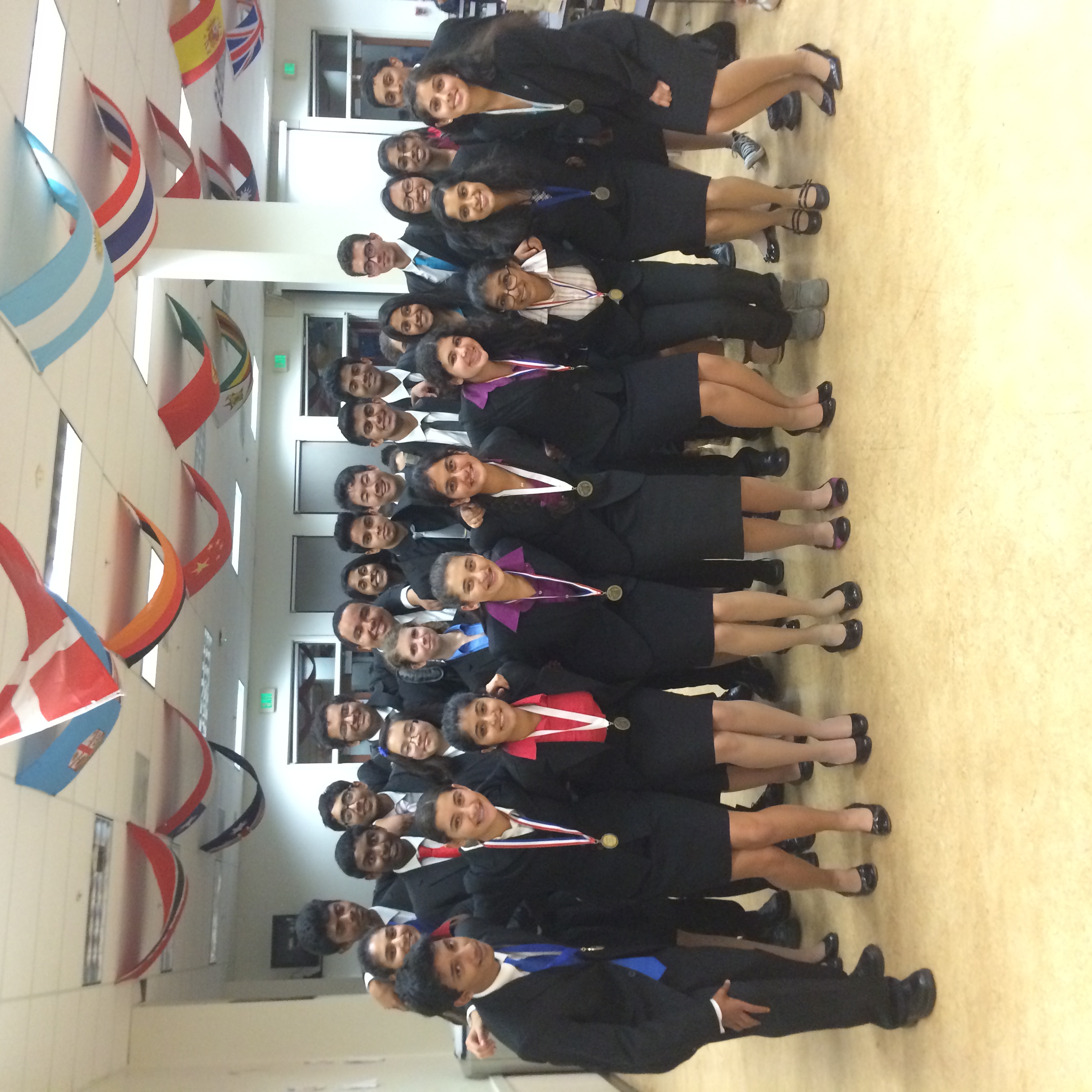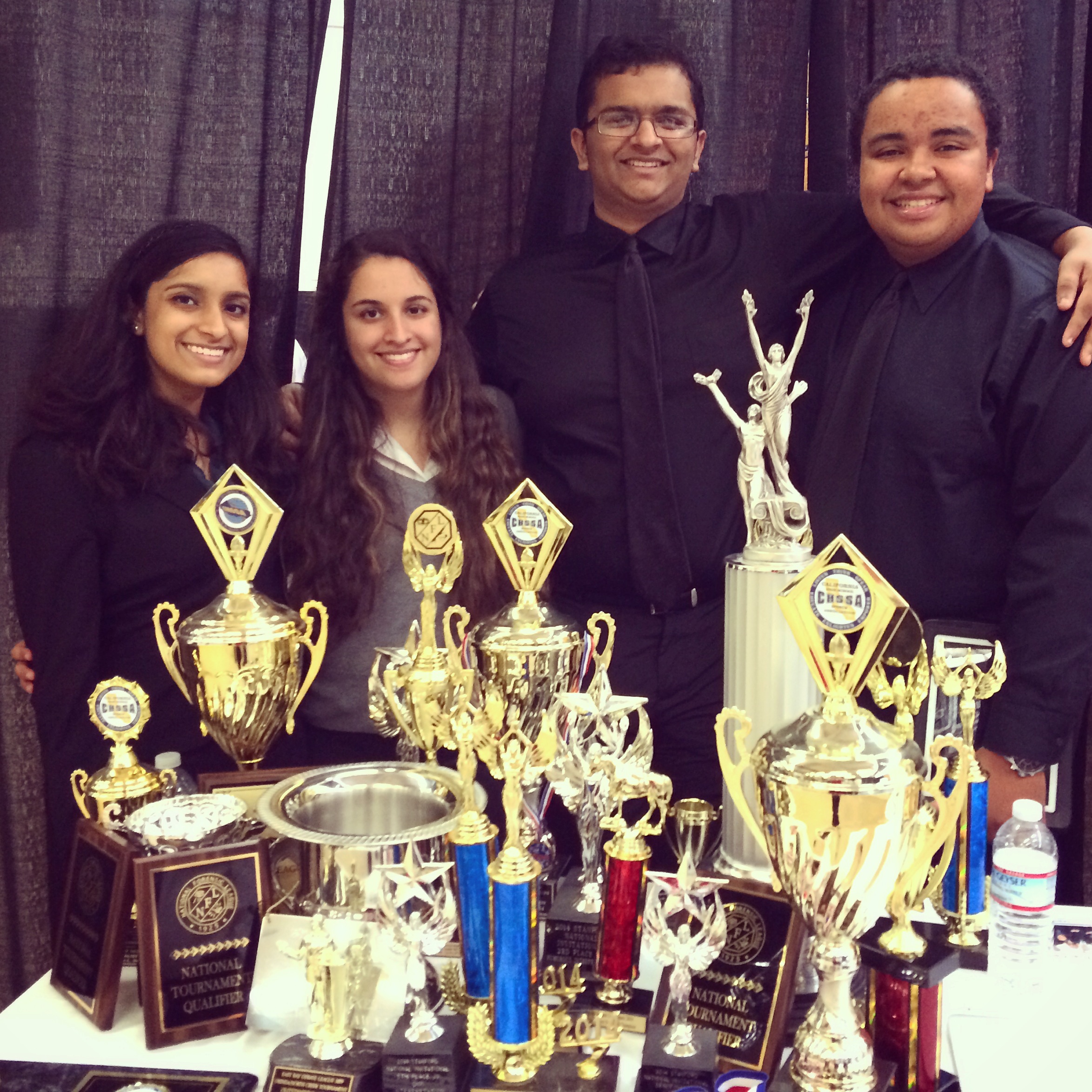





About the Team
About the Team

Overview
Learn about the history behind Mitty Speech & Debate.
Overview
Learn about the history behind Mitty Speech & Debate.
tEAM hiSTORY
Formed during the 2011-2012 school year, the Archbishop Mitty High School Speech and Debate team has grown exponentially from its 20 member after-school club to a 140 member team with an in-school class component. Since its inception, AMHS Speech and Debate has attracted significant interest as an educational and entertaining activity amongst its student body, drawing students from all departments and backgrounds at Mitty. Archbishop Mitty competes in one of the top Speech and Debate leagues in the country, the Coast Forensics League. Archbishop Mitty's Speech and Debate program placed 1st in the State and top 10 in the Nation for the past three years.
Who are we?
In speech and debate, students become members of the National Speech and Debate Association, a non-profit educational honor society that aims to foster public speaking and presentation skills. Students compete against fellow high school students in local, regional, and national competitions in several different events. The events range from fast-paced, academic debate, to quick-thinking impromptu events, to platform speeches advocating societal change, and theatrical interpretation events. At tournaments, students compete and have the opportunity to win trophies. More importantly, students learn important life lessons about leadership, teamwork, time management, persistency, humility, and confidence. These life lessons are even more rewarding than trophies, because they shine brighter and last longer.
Where do we compete?
Speech and Debate covers public speaking (speech) and argumentation (debate). There are a total of twelve speech events, broken down into three categories: Original, Interpretive and Spontaneous events. There are a total of five debate events, consisting of either a single debater on each side, a team of two debaters on each side, or an individual debater within a larger group. A full list and explanation of the events we compete it can be found here.
What links might be valuable to explore?

Team Achievements
Take a look at Mitty Speech & Debate's Growth.
Team Achievements
Take a look at Mitty Speech & Debate's Growth.
Mitty Speech and Debate has claimed first at the California State Championship five times: 2016, 2017, 2018, 2019, 2021 (note: the tournament was not held in 2020, due to Covid).
To date, the team has produced 16 National Finalists and 16 State Champions.
This past summer at Nationals, MSD placed top-20 in speech and top-40 in debate out of 2,000 schools. Recent graduate Sritha Bhupatiraju (AMHS ’23) placed 2nd in Humorous Interpretation and Senior Sashank Balusu (AMHS ’24) placed 6th in Congressional Debate.

Events
Learn more about what events Mitty competes in.
Events
Learn more about what events Mitty competes in.
To learn more about the 17 events we compete in - watch these “How To Documentaries” created by MSD students.
Interpretation (ACTING) EVENTS
Duo Interpretation (Duo)
In Duo Interpretation, two’s never a crowd. Duo is the only speech event to involve two people, but there’s a catch: the partners can’t look at or touch one another. From finding a movie script or a published story and creatively reimagining it into a ten minute piece, Duo is an incredibly fun and entertaining event that explores creativity and teaches partners teamwork, reliability, and presentation/acting skills. If two heads are better than one, Duo is the most fun!
Humorous Interpretation (HI)
There's more to Speech and Debate than arguing in a stiff, starch suit using robotic hand gestures. Imagine a world where you can bring to life your favorite characters from plays, books and movies. Rather than evoking tears from the audience, how about making them pee their pants (with laughter)? Humorous Interpretation is an event for those born with a funny bone and a love for comedy. Amy Poehler put it best, "There's power in looking silly and not caring that you do.”
Dramatic Interpretation (DI)
Have you ever wanted to learn how to cry on command? How about getting other people to cry on command? In DI, you can develop and refine your skills as an actor, learning to get in touch with your character's emotions. You can choose to interpret an autobiography, play, novel, movie etc. In this event, you will discover how to cut a script, block a piece, create dynamic levels, connect emotionally with an audience, and yes, cry at the drop of a hat.
Program Oral Interpretation (POI)
Can’t decide between dramatic interpretation and humorous interpretation? There’s an event for that too! Program Oral Interpretation involves picking a central idea or theme and finding three or more published works—funny, sad, news articles, etc.—that build that idea. POI is the only interpretation event to involve a prop: a small binder that can be used in various ways to add dimensionality to a performance. Like other interpretation events, POI helps hone presentation and acting skills, helps explore creativity, and helps students become efficient content curators. POI can also involve singing, so it’s the perfect event to reach high notes!
Oratorical Interpretation (OI)
This is your basic, everyday, run-of-the-mill speech event. It’s literally memorizing and giving a speech that has been given before, pretty simple right? Nothing is ever that simple in Speech and Debate. Once you memorize the speech, you really have to understand the motivation behind the speaker and become one with the author.
Original EVENTs
Original Prose & Poetry (OPP)
It's said that every actor's dream is to be their own script writer and director. With Original Prose and Poetry, you have that chance. Competitors can formulate their own script on any topic, and perform it. With your writing and acting skills, you have 10 minutes to make your judge laugh, cry, and smile. Share your story and creativity with the world!
Original Oratory (OO)
Are you looking for a creative outlet for your opinions? Do you like to speak about problems in our society? In OO you'll convince the audience how we as a society should fix the problem you addressed. You can choose a topic of any field, from happiness to procrastination. Original Oratory is an innovative platform speaking event where people of all skill sets can succeed, but a captivating personality is definitely required!
Original Advocacy (OA)
Have you ever felt strongly about an issue in America, but feel as though it just doesn’t get enough attention? Original Advocacy can be your outlet! What makes Original Advocacy truly rewarding is the fact that each speech requires the student to advocate for an original solution to the selected problem. Original Advocacy raises awareness about issues you care about while inspiring adults and fellow students.
Expository Speaking (Expos)
Known affectionately as “competitive teaching,” expository is a great event to inform your audience about a particular topic, display your artistic abilities through visual aids, and tell cheesy puns without getting groaned out of the room. From topics such as menus, to legos, to standards of beauty, Expos allows students to express a love of teaching and creativity and teaches invaluable presentation skills to captivate any audience.
Spontaneous events
Impromptu (Imp)
For individuals with quick wit who prefer spontaneity or for individuals who would like to develop those skills, impromptu is a great event to develop an engaging speaking style. With 2 minutes to prepare a five minute speech on topics as abstract as “ignorance” or even common day objects such as “picnic basket,” impromptu challenges you to think on your feet and connect ideas to create an entertaining, thought-provoking speech.
International or National Extemporaneous (IX/NX)
Impromptu's more formal older sibling, Extemp, is also a limited preparation event. In Extemp, competitors are given 30 minutes to prepare a 7 minute speech on a current events topic. For example, “Is China’s economic growth target too ambitious?” Using previously researched articles, competitors develop an opinion on the topic. Extemp is an incredibly rewarding event, challenging participants to think on their feet, to keep up with the news, and offer critical analysis of world events.
Debate events
Public Forum Debate (PF)
When you think of debate, you probably imagine a group of intellectuals engaging in fervent discussion about some form of a current event. That’s exactly what Public Forum is. Considered to be the most accessible and orthodox form of debate, Public Forum is a partner-debate in which students work with one-another partner to contrive two cases, one that affirms that month’s respective resolution (topic), and the other that negates. Armed with evidence and citations, students use their cases and logic to argue for or against the resolution, attempting to convince the judge that their arguments and logic outweigh those of the other team’s at the end of the debate.
Example Resolution (2020 April): The United States should increase its use of nuclear energy for commercial energy production.
Parliamentary Debate (Parli)
No prep? No problem! Parliamentary Debate is the only spontaneous form of debate in the CFL, where competitors are given topics, not months, but rather minutes in advance of the round. Armed with pre-cut articles, common knowledge, and a trustworthy partner, parliamentary debaters have 20 minutes to develop a case either affirming or negating a resolution. You and your partner will learn teamwork and critical thinking as you debate a wide variety of topics, ranging from a nuclear deal with Iran, to the merits of revoking Justin Bieber's citizenship. If you love the challenge of thinking on your feet and want to debate something new every single round, Parli is the debate style for you.
Lincoln-Douglas Debate (LD)
Named after the renown series of debates between President Abraham Lincoln and Senator Stephen Douglas on the issue of slavery, Lincoln-Douglas (or LD) debate is a one-on-one event that focuses heavily on logic, ethical values, and philosophy. Using evidence, citations, and philosophical ideologies, students form two cases, one that affirms that month’s resolution, and the other that negates. The goal of the debate is to convince the judge that your moral views on the topic are founded and frankly more logical than those of the other side. For those with a keen interest in the issues of morality and developing different views on relevant issues, Lincoln-Douglas is a rewarding and engaging event.
Example Resolution (2020 March/April): Predictive policing is unjust.
Policy Debate
The most well-established of the debate events, policy debate distinguishes itself from other debates in its depth, detail, and prestige. In teams of two, policy debaters discuss a specific plan of action that addresses a yearly resolution. If you love research, analytic thinking, and intellectual discussion, and are a motivated, dedicated, and tireless worker, come and learn what it means to participate in the nation's oldest debate styles as part of Mitty's young yet successful policy debate program!
2021-2022 Resolution: The United States federal government should substantially increase its protection of water resources in the United States.
2022-2023 Resolution: The United States federal government should substantially increase its security cooperation with the North Atlantic Treaty Organization in one or more of the following areas: artificial intelligence, biotechnology, cybersecurity.
Congressional Debate
Imagine the U.S. Congress. Now imagine yourself in it. That's the purpose of Congressional Debate, where competitors take part in mock sessions of congress and debate the merits of various bills. Prepare cases for either side of each piece of legislation, and in three minute speeches, state your case. Competitors are then cross examined by their fellow representatives or senators and must defend their view. For those with interest in law-making or simply arguing about relevant issues, Congress is an accessible and engaging event that enhances students’ ability to defend their views, think on their feet, and research effectively
“Joining this team my freshman year, I was intimidated. Public speaking was something that I had always struggled with and I knew that I was joining a team that had unreal talent. It took some time to find my footing but I can truly say that the skills I developed on this team and friends I made will last me a lifetime. The confidence, critical thinking, and public speaking skills that I gained have visibly impacted nearly every aspect of my life and have effectively set me up for the career that I am pursuing. I may not have won the most trophies or medals but I have definitely seen a transformation in my life thanks to Mitty speech and debate.”
“What I loved most about speech and debate was working with the team to help each other improve. Speech in particular is largely an individual activity, but performing in class and coaching each other makes every member on the team a part of all the individual victories. Nothing feels better than watching yourself improve at articulating your ideas and feeling the satisfaction that your effort was worth it, but also that you have an entire team supporting you that helped you get there. Being a part of taking Mitty from a small and virtually unknown participant in in our league to one of the top powerhouses is the accomplishment I am most proud of in high school.”
“You can hear over and over again that Speech and Debate will help you in every aspect of your life, but you never fully realize it until you walk into a room full of people and can coherently express your (well-organized and eloquent) thoughts. I find myself able to talk to professors with ease and never question whether I am competent enough to not make a fool out of myself. I have the confidence to run for leadership positions amongst people I barely know, all due to the confidence that speech and debate has given me.”
“I had been a part of a sports team before, but being a part of a speech and debate team was a whole new ballpark. I was able to tell people with pride that not only was I an athlete, but I was a speech and debater, too. It helped me gain the confidence and research/speaking skills that I wouldn’t have had otherwise. I was confident both in my athletic abilities and in my ability to interact and engage with my peers and those who might have intimidated me before.”
“When I was younger, I had a lot of confidence and sass. Coming into high school however, I lost a lot of it. But Speech and Debate gave me back some of the self-assurance that I thought I had lost. Even more important than succeeding competitively was the confidence I gained from my incredible teammates and coaches. I have formed a community here that will support me wherever I go, and I am eternally grateful for the part of myself I have been given back. Thank you MSD.
”
“The sooner you go all in on this activity, the sooner it begins to quite literally change your life. The work is hard and fun, but the friendships, memories, and life lessons last a life time. You will meet the most supportive, intelligent people you have ever met through this activity and they will become your family as you grow and develop together. There is a saying that goes: “Don’t you wish there was a way to know you’re in the ‘good old days’ before you’re out of them?” Have fun and relish every moment on this team, because looking back on it, the waking up early for tournaments, the blitzing late despite having homework to do, the researching, the staying until all rounds are done even though it’s past 11 at night and you’re tired, the stress of States and Nats, all of this will be an integral part of your high school and life experience thus far. You will affectionately look back on this time as the ‘good old days’. This activity will change your life, but only if you let it. I can say without a shadow of a doubt that this activity, including both the competitive experiences and the friendships created, has been the best time of my life and I know that I’m better prepared and confident for the rest of my life because of it. Thanks to everyone who was with me along the way on this incredible ride, and as for MSD and its future, I know that the best is yet to come. ”
“Although it may be considered an “extracurricular” activity, speech and debate was undoubtedly the most educational experience I had in high school. Through MSD, I grasped many of the things in life that are better learned than taught – what it means to live passionately, what qualities I value as an individual, how to recognize success without a trophy or a reward. It’s difficult to look back on my time in MSD with anything but fondness, and I will be forever grateful for all of the incredible students, parents, and coaches who have been a part of all of the tears, triumphs, and tribulations that have grown me into the young adult I am today. ”
“I joined the Mitty Speech and Debate team my freshmen year not really knowing where it would lead me, but now reflecting, my time on the team was truly the most fulfilling and rewarding portion of my entire high school experience. Never would I have dreamed that an activity, and moreover a community, could have taught me the lessons and shaped me into the individual I am today the way MSD did, and for that I am ever grateful.”

FAQs
Have some questions? Let's get them answered.
FAQs
Have some questions? Let's get them answered.
How many competitive tournaments do we compete at?
The team competes at roughly 30 tournaments over the course of a school year. Team members are required to compete at a minimum of two tournaments per semester. Tournaments are on the weekends and students are given a tournament calendar the first week of class.
I heard my parents are required to judge at tournaments. Is that true?
Great question! Parent involvement is extremely important and parents often get the opportunity to judge at tournaments. Parents will get more information regarding judging once their child joins the team.
what are the different ways you can compete in speech & debate?
Click here to learn more about all the different type of speech and debate events.
HOW CAN I JOIN THE TEAM?
You can sign up in April for auditions to join the team.



